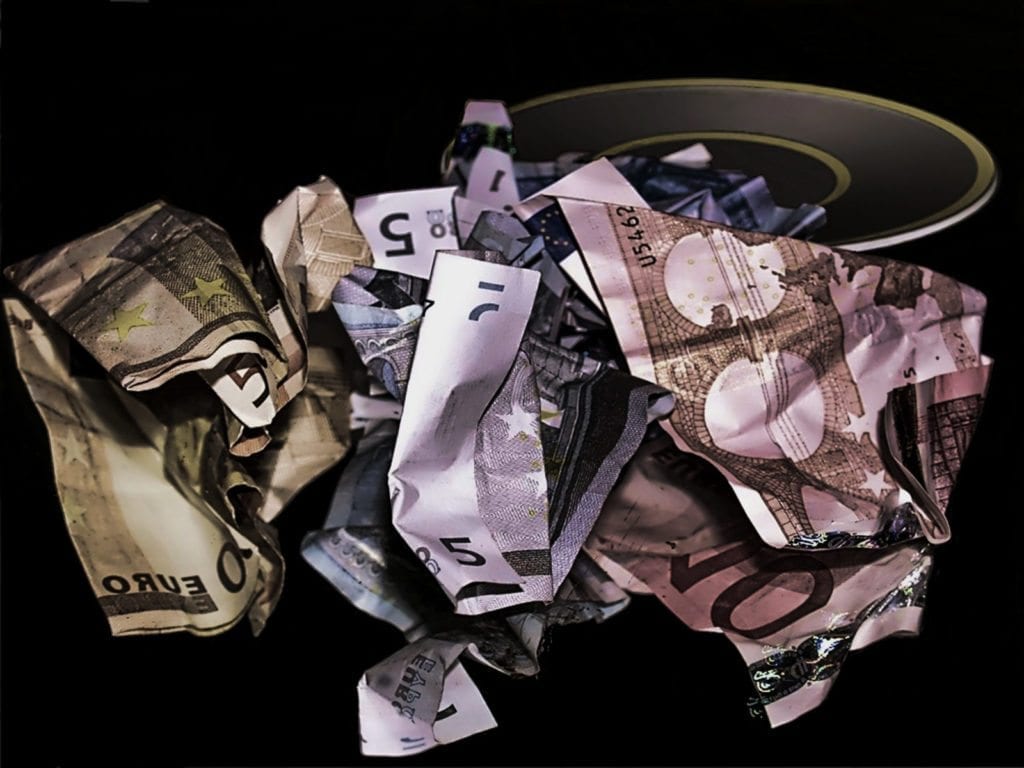Leaving money in the bank is sometimes said to be the risk-free choice. But in fact, keeping your savings in cash does carry risk. Here are some questions to think about if all your wealth is in cash.
How safe is your money?
As the recession taught us, Irish banks and credit unions aren’t invincible. Luckily, if your bank or credit union fails, the state guarantees to pay your deposit, up to a limit of €100,000.
So the first rule is: avoid keeping more than €100,000 in a single financial institution.
Remember the limit applies to the total amount in your current and deposit accounts, not per account. If you are sitting on a large cash deposit – and don’t wish to invest it – you should at a minimum spread it around different banks.
Beware of introductory rates
Banks sometimes promote headline-grabbing interest rates to attract new customers. But often these rates are reduce to near-zero.
KBC’s ‘extra regular saver’ account, for example, pays 0.55% interest… until you hit a balance of €40,000. Once you do, the entire balance earns interest at the “Standard Demand Deposit Account interest rate”.
How much is that then? A whopping 0.01%!
At that rate, €100,000 on deposit for a decade would earn interest of €100 (or €67 after tax)!
And remember, interest rate deals change over time. It’s always worth checking today’s rate on any account that once paid you decent interest.
Inflation is eroding the value of your cash deposits.
Inflation is climbing once more. With interest rates so low, it’s almost certain that your cash deposits will not keep up with rising prices.
And then your interest is taxed at 32% before you see it.
Under Ireland’s deposit interest retention tax (Dirt tax) regime, any interest you’re due gets taxed immediately before it is paid to you.
While exit tax on the gains on your investment funds is a little higher at 41%, it’s only charged every eight years, or when you sell. Up until that time, your investment gains compound – the concept that Albert Einstein famously called the eighth wonder of the world.
Is access to your cash restricted?
Banks impose numerous restrictions on access to your cash, perhaps in return for a smidgen more interest.
For example, a ‘notice’ deposit account will typically require 30 or even 90 days advance notice before you can withdraw your cash. Term deposits can require you to lock up your money for anything between 3 and 7 years.
This is no use if you’re holding this cash for rapid access as an emergency fund.
Other accounts will restrict you to a specific number of withdrawals per year. It’s always worth reading the small print.
Opportunity cost
Above all, if you’re leaving you’re an excess of your money in cash, there’s the cost of the missed opportunity to invest it in a more productive asset.
Over the long term, investing has much higher growth potential than leaving cash in the bank.
For sure, cash has its place, and finding the right balance between investing and saving is different for everyone. By investing a portion of your wealth, you’ll reduce the risks associated with leaving your cash in the bank.
Use Moneycube today to figure out what’s right for you.










